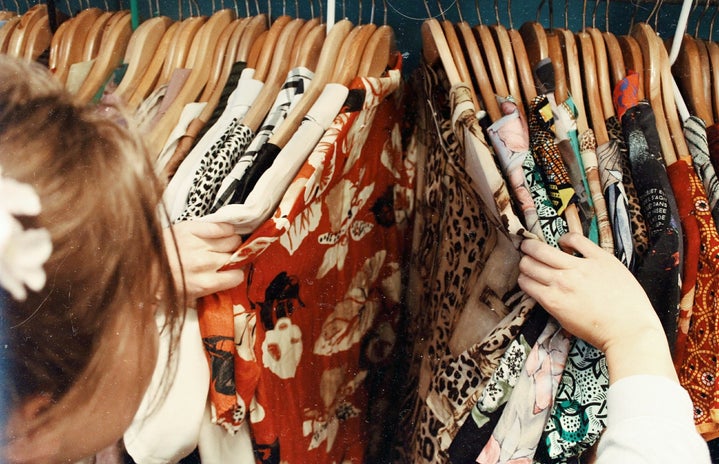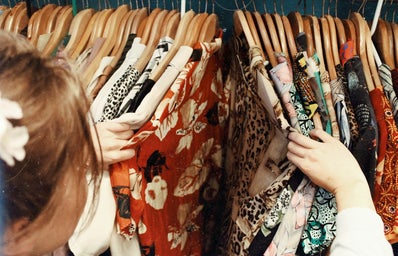Ever dreamed of an easy way to look up how ethical and/or sustainable your favorite clothing store is? Like, an easy zero to five star situation? The app “Good On You” does just that; however, in the year that I’ve tried to use this app since I found it on TikTok, I’ve found issue after issue.
First, what’s up with that name? The phrasing of “Good On You” is entirely condescending. Saying it outloud makes me feel like an asshole and reading it on my homescreen makes me feel patronized. I also hate the way that it so heavily drops the weight of the whole world on the shoulders of the individual consumer. As if my personal purchases a couple times a year have the ability to solve the entire climate crisis.
Already, we’re off to a bad start with a two-fold misstep in just the naming of the service. When you open the app, you’re met with a gorgeous image of the one and only Emma Watson. The image is grainy which caused me to question whether she actually consented to the use of her face on the app. My research shows that she actually did consent as she is a supporter of the initiative, appearing on their about page with quotes that give a similar message of personal responsibility.
I can’t even blame her, Emma has the money to buy sustainable clothing, another aspect of my critique. If you were to search American Eagle, you would see it has a rating of ⅖ “not good enough” and also recommendations for similar brands at a similar price point, the top one being Kings of Indigo. If you were to search AE’s women’s jeans for their least expensive pair, you’d see a price tag of $30-40. KoI’s lowest price on a pair of women’s jeans is 99,99 euros, or $113.05. Triple the price.
I have no issue with sustainable clothing costing more money, I truly get why it must be that way. I do have issues with Good On You calculating low, mid, and high cost separately and thus recommending expensive alternatives to affordable clothing.
The amount of problems with their recommendations doesn’t stop there. Most of the time, the alternative sustainable shops aren’t even similar to the one originally searched. I don’t think the average Ambercrombie & Fitch or Urban Outfitters shopper wants kids swimsuits with the ugliest prints imaginable. I don’t think they’d want an entire wardrobe of various shades of linen, either.
In addition to the recommendation algorithm, the system that the app uses to rate brands on their sustainability could use improvement. The default is one star (a.k.a. “bad”) when a shop doesn’t make all of their sustainable practices readily available. This is, however, inaccurate reporting. The first change that I would make to this app is the possibility of a zero star, “unknown” rating. For the shops that have provided information but still have low ratings, Good On You does do a good job of providing rationale for the rating (usually greenwashing).
The best thing that this app does is produce educational articles that can be found on the front page (right underneath Emma). Some take closer looks at brands such as Zara, ASOS, and Cider while others might list ways to make your Christmas more sustainable. I haven’t read many of these so I can’t offer a credible critique, but I sincerely doubt that they could be any worse than anything I’ve already discussed.
If you are interested in reducing your personal carbon footprint by turning towards sustainable consumption, try to remember that the most sustainable option is the one that you already own. Repair your clothes when they get damaged and dye them for a fresh look if you get bored. If you do want to buy new clothing, putting that pressure on yourself to make conscious choices can be really difficult, but ways to do that are to buy second hand and look for sustainable shops.
Being a conscious consumer is a lot easier said than done. It doesn’t feel fair for the average person to have to bear the weight of that responsibility when it is only really the decisions of the ultra rich that make significant impacts. Buying a shirt from Shein, one of the most notorious fast fashion brands, is nowhere near the realm of celebrities who own fracking ranches or exclusively use private planes for travel.
Trying your best can even mean refraining from buying entire closets worth of fast fashion for every microtrend. Trying your best can be just continuing how you always do. It’s ridiculous to expect that just one person can make that much of a change in our climate crisis. It is not up to you to save the world on your own.


